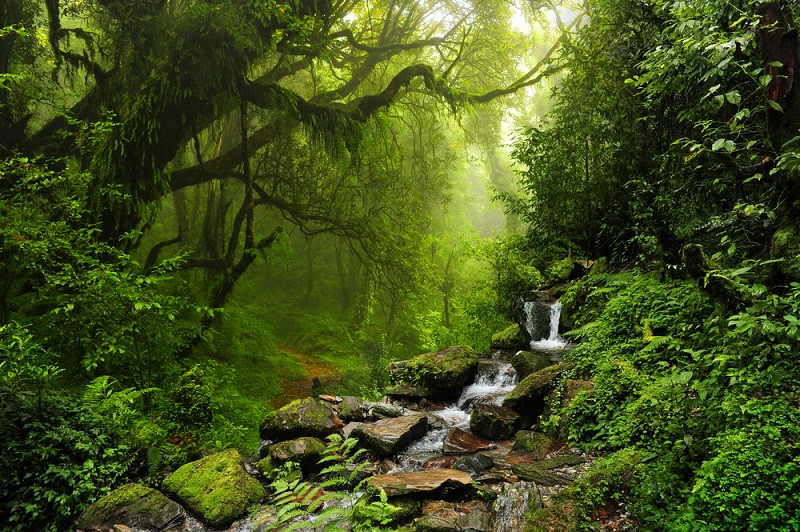Popular Reads
Top Results
Can't find what you're looking for?
View all search resultsPopular Reads
Top Results
Can't find what you're looking for?
View all search resultsClimate change tops list of global worries for young people, says Amnesty
Change text size
Gift Premium Articles
to Anyone
F
our out of 10 young people view climate change as one of the most important issues facing the world, an Amnesty International survey on the state of human rights showed on Tuesday.
The Amnesty poll, released on Human Rights Day, asked more than 10,000 people aged 18-25, in 22 countries across six continents, to pick up to five major issues from a list of 23.
Of those, 41 percent selected climate change, making it the most commonly cited issue globally.
“For young people, the climate crisis is one of the defining challenges of their age," said Kumi Naidoo, Amnesty's outgoing secretary general, noting the huge surge in young people protesting about it on the streets.
"This is a wake-up call to world leaders that they must take far more decisive action to tackle the climate emergency or risk betraying younger generations further,” he added.
Among global worries, pollution was ranked second at 36 percent and terrorism third at 31 percent.
At the national level, however, corruption, pollution, economic instability and income inequality came out as the top four concerns, with climate change pushed into fifth place.
"We are living inside a failed system," said Naidoo. "The climate crisis, pollution, corruption and poor living standards are all windows on an alarming truth about how the powerful have exploited their power for selfish and often short-term gain."
When asked who should take the most responsibility for protecting the environment globally, 54 percent of respondents said governments, 28 percent individuals and 14 percent businesses.
And 63 percent agreed governments should take the wellbeing of their citizens more seriously than economic growth.
Read also: Young people take to the streets for climate: Who are they?
Future costs
On Tuesday, meanwhile, a law firm representing 16 children from around the world, including Swedish teen activist Greta Thunberg, sent letters to the governments of Norway and Canada.
Those countries' support for their oil and gas industries breached the children's rights under the UN Convention on the Rights of the Child, the letters said.
"Expanding your oil and gas production will lock in decades of greenhouse gas emissions, jeopardizing the universal rights of all children to life, health, and culture," said the letters.
"As children, the petitioners are the ones who will inherit the worst impacts of the climate crisis and bear the future costs of the decisions you make today," they added.
The 16 children, who also include 14-year-old U.S. activist Alexandria Villasenor, in September filed a complaint with the UN Committee on the Rights of the Child against five countries over their carbon emissions.
The new letters came after the Philippines unveiled on Monday the findings of a four-year inquiry into the human rights impacts of climate change in the Southeast Asian country and the contribution of 47 "carbon major" companies to those impacts.
Its Commission on Human Rights, which heard harrowing testimony from typhoon survivors, concluded that the companies played a clear role in causing global warming and its effects.
Based on the evidence, it said fossil fuel companies could be found legally and morally liable for human rights violations arising from climate change.
Scientists say burning fossil fuels for industry, energy and transport is responsible for the vast majority of the greenhouse gas emissions heating up the Earth.
Greenpeace Southeast Asia Executive Director Yeb Saño said a growing number of climate-related legal cases are now being heard or filed across the world.
"With the conclusion of this investigation, we believe many more communities will take a stand against fossil fuel companies that are putting profit before people," he said in a statement.
At the UN talks on Monday, Rose Whipple, an 18-year-old activist from the Santee Dakota tribe in Minnesota, in the United States, spoke about how she and other young people had tried - and failed - to stop approval for a tar sands oil pipeline, arguing it would contaminate their sacred river water.
"We (indigenous people) are on the frontline doing this work today, right now," she told journalists. "We deserve to be listened to, and we also deserve to have our lands back."







